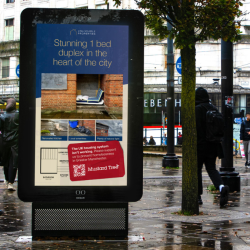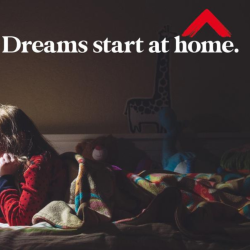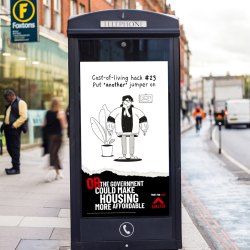A Google search for “agency vs. in-house” returns 1,030,000,000 results. Additionally, two major media publications covered in-housing in April. One claimed the in-housing trend was accelerating, the other claimed brands were putting their in-house plans ‘on ice’. The two, widely publicised, and yet widely conflicting opinions have left many businesses questioning whether they should bring marketing or advertising in-house or vice versa.
So, which is it?
Well, put it this way. Imagine the public all voted for their favourite mode of transport and were given the option of train, car or plane. Car would win by a landslide. That’s all well and good, as by car is a nice way to travel. Comfortable seats, blankets in the back, potential pitstops for Costa Coffee and a McDonalds. But now imagine you’re travelling to Dubai. Suddenly, the car isn’t looking too great, and by plane is finding its wings.
In the same vein, it would be fair to say that there is never a ‘one-size-fits-all’ approach to anything we do in marketing, and this is especially true of in-housing.
As we return to post-lockdown normality…
… we’re likely to see many more brands explore whether in-housing is both cheaper and potentially more effective. And the thing is, for some, it’s not a bad idea at all. A recent survey of 200 senior marketers in 2021 says in-housing allows for more efficient remote working (62%) and saves on external costs (58%). Many of the specific skills being in-housed are ones that make sense to in-house, too. The same survey shows that, in order, in-housed functions are: content creation, media buying, design and social media.
In-housing clearly offers business leaders greater proximity and ownership to these areas. Yet they do also differ substantially in terms of how skilled these roles are, leading to in-housing not being as straightforward as hiring a candidate and letting them crack on with things. Hiring a blogger is very different to hiring a media buyer.
Marketing is a broad term spanning many different roles and functions. Then you move into digital marketing which covers individual specialisms such as search engine optimisation (SEO), paid search, programmatic and social. It may be that some of these are already managed by marketers internally, but given the unique differences between SEO and paid search, these should be managed by individuals, or teams that have the appropriate expertise to execute each effectively.
Programmatic advertising is almost certainly the hardest marketing function to in-house, due to the complexities of the technology which involve harnessing and analysing vast reams of data. Building an internal AdTech and MarTech stack to manage this is not for the faint-hearted, nor is it cheap — and is therefore typically reserved for enterprise-level businesses that can afford to pump in millions of pounds.
Even then, you need the right talent to utilise it, and quite simply there isn’t the right quantity of talent to go around. Agencies have typically been the talent “farms” for our industry. They’ve owned the fundamental role of finding, nurturing, and growing entry-level talent across all aspects of advertising.
Consider the traditional agency structure.
Agencies would hire bright young people straight from education, with freshly printed degrees. These new agency recruits are trained from scratch to learn all parts of the agency business. They will start with more repetitive tasks from reporting, ad trafficking to pulling pacing reports and analytics before being trained in strategic or client-facing aspects of planning and account management.
This would create skilled media planners and strategists who not only understand the data, but also the impact it has on all aspects of the brand. Without this training structure, we have data and analytics teams who lack the contextual experience to make sense of campaign numbers. Additionally, we have bright and eager graduates who can’t get hired because they don’t have practical experience.
Eight of the most in-demand marketing skills are related to highly specialised expertise including paid social media, ad serving and analytics. Many of these roles require a breadth and depth of knowledge that is in short supply. Given the direction of the industry, wild swings in consumer behavior, and rapidly growing software capabilities, it’s clear that the demand for specialised skills will only increase.
To attract talent — and retain it
You need to be able to train people, motivate them, make sure they are invested in your company and enthusiastic about their career development. All of which can be harder and more costly to accomplish than appointing an entire agency.
The sensible advice would be to use some sort of hybrid model, a mix of in-house talent supplemented with agency support, dependent on your business’s needs. But even that will require a boost in those happy to take on those roles. The parachute role can be a little lonely, as can being the only person in your ‘department’. A lot of the enjoyment, bonding and fulfilment at agencies comes from shared problems and shared solutions, not to mention the ability to learn from your peers, whatever their job level.
Ultimately, to in-house or not to in-house really isn’t the question. It implies the decision is far too binary when it’s a complex scale with many variations and nuances, and it really does depend on your businesses’ processes, and budget. If you are still in the midst of debating whether to in-house, I strongly suggest you don’t just follow the zeitgeist, consider what your business objective is for doing so.
For brands that want greater control over their own data…
In-housing offers this, providing they have the ability to fully manage and analyse marketing internally. If this is the case, then in-housing is a no-brainer, because it’ll cut out time spent on agency liaison and any delays in the feedback loop between the agency and the business. It may also be the case that a business wants to increase its operational headcount, and given that each area of marketing requires its own specific experts; in-housing is certainly a way of achieving this.
One thing is for sure though, the transitional period is drawn out and messy, often with no end in sight. It doesn’t just happen overnight. A roadmap and strategic direction need to be approved at the highest level of the organisation. Talent needs to be recruited and trained. Platform partnerships need to be redefined.
These things are expensive and time-consuming — and they typically require external support to pull off. Only you can decide if this is a realistic prospect — and if you have the resources to execute it correctly in a way that will enable you to start seeing the savings in the long term.
If you do, then great. If you decide to continue working with external agencies or employ a hybrid approach, good choice because you’re doing what’s right for your business. Let’s stop putting agency in the red corner and in-house in the blue corner, and above all, let’s do our industry a favour and just stop making sweeping statements about it.
Featured image: Chester Wade / Unsplash































